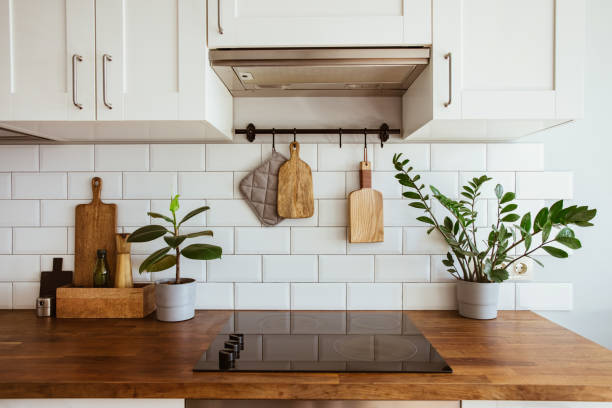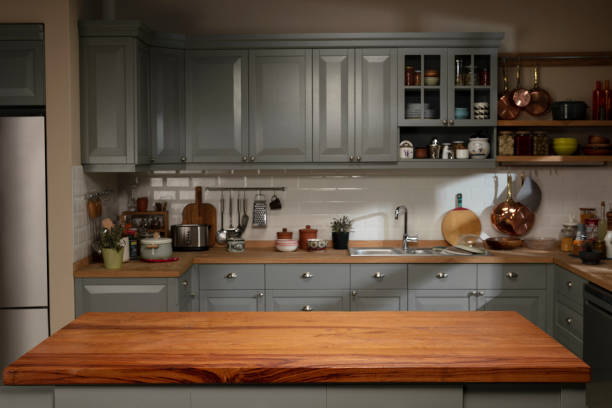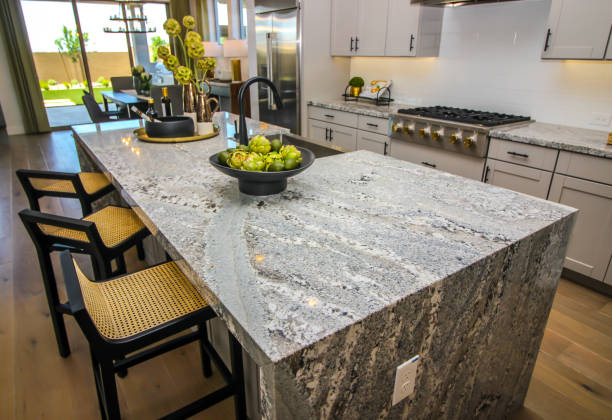Should Countertops Be Renovated Without Changing Cabinets?
When the time comes to replace your countertops, you may ask if you also need to update your cabinets. Before making a final choice, there are a number of aspects to consider. This article will explore the advantages and disadvantages of upgrading countertops without also updating cabinets. In order for you to make an informed choice regarding your next home renovation project, we will also examine countertop warranties.
Advantages of Replacing Only Your Countertops
There are a number of reasons why you might elect to replace only your countertops and not your cabinets. The initial consideration is price. Depending on the material you select, new countertops may be less expensive than new cabinets. And if you're satisfied with your current kitchen's layout, there's no need to incur the price and inconvenience of taking everything out and beginning from scratch.
Another benefit of changing only the countertops is that it allows you to maintain the elements of your present kitchen that you love, such as cabinet hardware and backsplashes. Lastly, if your cabinets are in good condition but your countertops are outdated or damaged, changing only the countertops might give your kitchen a modern appearance without requiring a complete overhaul.
The Disadvantages of Replacing Only Your Countertops
Style and design possibilities will be limited if countertops are replaced without cabinets. This choice may not be suitable if you wish to produce an entirely fresh design for your kitchen.
If the countertops are not properly installed or positioned, their quality may also deteriorate. This can lead to unattractive gaps and ill-fitting joints that are challenging to clean. Installation Challenges: A third downside of replacing your countertops without replacing your cabinets is that if you lack experience with home renovation jobs, installation can be complicated and time-consuming. If you lack confidence in your skills, you should leave this type of task to the experts.

Considerations to Make Prior to Making a Choice
In addition to cost and time, there are additional elements to consider when determining whether to replace the countertops or cabinets first. Here are a few considerations to keep in mind when you make your choice:
Kitchen Layout
If you have a tiny kitchen, it may be preferable to replace only the countertops as opposed to the cabinetry. This is due to the fact that following a significant renovation, such as the installation of new cabinetry, tiny kitchens can seem claustrophobic. However, if you have a bigger kitchen, simply replacing the countertops may not be enough to create an update.
Functionality
When selecting to replace your countertops or cabinets (or both! ), you need also consider the functioning of your kitchen. If your current cabinets are in decent shape but antiquated or not very functional, upgrading only the countertops may be a viable alternative. Nevertheless, if your current cabinets are in bad shape or are not very functional, it is likely a smart idea to replace both the countertops and cabinets. Here are some suggestions for creating a functioning and orderly kitchen.
Appliances in Use
Consider whether your current appliances will need to be replaced at the same time as your cabinets or countertops. For instance, if you're already going to replace your appliances, it may make sense to change your cabinets at the same time to ensure that everything coordinates. If, on the other hand, you adore your current appliances and they are in good working condition, changing only the countertops may be a better alternative.

Cabling and Plumbing
Consider whether or not your wiring and plumbing will need to be updated concurrently with either job. This is especially crucial if you are considering converting from electric to gas appliances, as rewiring may be required. You must also ensure that any plumbing upgrades (such as installing a new sink) are compatible with either project.
Warranties for Countertop
There are two sorts of coverage to consider when it comes to warranties for quartz countertops: the manufacturer's warranty and the installation warranty. The majority of manufacturers provide a one-year warranty against flaws in materials and craftsmanship. This means that if there is a defect in the countertop itself, the manufacturer will repair it at no cost. The firm that installs the countertop offers a warranty for the installation. This guarantee covers installation-related issues, such as seam cracks and finish chips. Typical installation guarantees are also one year in duration.
Several variables, including cost, time limits, and desired results, must be considered when deciding whether to replace your countertops or cabinets first. Before making a final decision on your kitchen redesign, be sure to weigh all available options thoroughly.
Feel free to read this blog post from Denver Stone Plus to get more ideas about this topic.

